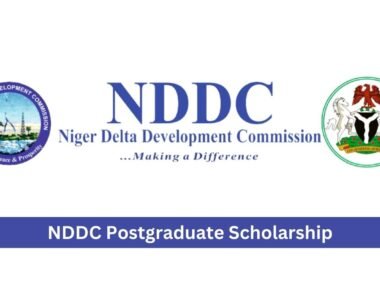Talmudic scholarship represents a cornerstone of Jewish intellectual and spiritual life, encompassing the rigorous study of the Talmud and related texts that form the backbone of Jewish law, ethics, and tradition. For centuries, students of the Talmud—often referred to as Torah scholars—have dedicated their lives to mastering these sacred texts in yeshivas and other institutions of Jewish learning.
However, the financial demands of full-time study can be significant, particularly for those pursuing advanced Talmudic scholarship without concurrent secular employment. To support these scholars, a variety of Talmudic scholarship opportunities exist, ranging from institutional grants to private endowments and community-funded stipends. This article explores the landscape of Talmudic scholarship funding, including its historical context, types of financial aid, eligibility criteria, application processes, and strategies for securing support.
Historical Context of Talmudic Scholarship
The Talmud, comprising the Mishnah and Gemara, is a vast compilation of Jewish oral law and commentary, developed over centuries and finalized around the 5th century CE (Babylonian Talmud) and earlier for the Jerusalem Talmud. Studying the Talmud is not merely an academic exercise but a religious and cultural commitment, often undertaken in yeshivas—traditional Jewish schools dedicated to Torah and Talmudic study. Historically, communities recognized the value of supporting scholars, known as “lomdim,” who devoted their lives to learning. In medieval Europe, wealthy patrons often sponsored yeshivas or individual scholars, a practice that continues in modern forms through Talmudic scholarship programs.
In the 20th and 21st centuries, the growth of Jewish communities in North America, Israel, and Europe has led to an expansion of institutions offering Talmudic scholarship funding. These programs aim to preserve Jewish learning while alleviating financial burdens for students, many of whom study full-time and support families. Today, Talmudic scholarship opportunities are offered by yeshivas, charitable organizations, and private donors, reflecting a commitment to sustaining the tradition of Torah study amidst modern economic challenges.
Types of Talmudic Scholarship Funding
Talmudic scholarship funding comes in various forms, tailored to the needs of students at different stages of their learning journey. Below, we outline the primary categories of financial support available.
1. Institutional Scholarships from Yeshivas
Many yeshivas offer internal Talmudic scholarship programs to support their students. These scholarships are often funded through endowments, alumni donations, or community fundraising efforts. Prominent yeshivas, such as Yeshiva University (New York), Mir Yeshiva (Jerusalem), and Beth Medrash Govoha (Lakewood, New Jersey), provide financial aid to students demonstrating academic excellence or financial need.
-
Yeshiva University: Through its Rabbi Isaac Elchanan Theological Seminary (RIETS), Yeshiva University offers scholarships for students pursuing rabbinic ordination and advanced Talmudic study. Awards are based on merit and need, with applications processed through the university’s financial aid office.
-
Beth Medrash Govoha: One of the largest yeshivas in the world, this Lakewood institution supports thousands of students with stipends and scholarships. Funding often comes from donor contributions, and students may receive monthly stipends to cover living expenses.
-
Mir Yeshiva: Located in Jerusalem, Mir provides Talmudic scholarship funds to students, particularly those in its kollel (a program for married scholars). Support may include tuition waivers and modest living stipends.
Eligibility for institutional scholarships typically requires full-time enrollment, a commitment to rigorous study, and, in some cases, financial need documentation. Applications are often submitted directly to the yeshiva’s administration, with deadlines varying by institution.
2. Kollel Stipends
A kollel is a post-yeshiva program where married men (and, in some modern contexts, women) engage in advanced Talmudic scholarship. Kollels are particularly common in Israel and Orthodox Jewish communities worldwide. Participants often receive monthly stipends to support their families while they focus on their studies. These stipends are considered a form of Talmudic scholarship, as they enable scholars to dedicate themselves fully to learning.
-
Israel-Based Kollels: In Israel, kollels like those affiliated with Ponovezh Yeshiva or Kollel Chazon Ish provide stipends ranging from $500 to $2,000 per month, depending on the institution and donor funding. Some kollels require participants to pass rigorous exams to demonstrate proficiency.
-
North American Kollels: Institutions like the Lakewood Kollel and the Chicago Community Kollel offer stipends to married scholars. These programs often prioritize students with strong Talmudic backgrounds and a commitment to long-term study.
To qualify, applicants must typically be enrolled in the kollel, demonstrate proficiency in Talmudic study, and, in some cases, commit to a minimum number of study hours (e.g., 40–60 hours per week). Applications may involve interviews with rabbinic faculty and submission of references.
3. Private and Community Scholarships
Private donors and Jewish community organizations play a significant role in funding Talmudic scholarship. These scholarships are often established in memory of loved ones or to honor rabbinic leaders, and they may be administered through foundations, synagogues, or charitable trusts.
-
Jewish Federations: Local Jewish federations, such as the Jewish Federation of Greater Los Angeles, occasionally offer scholarships for Talmudic study, particularly for students attending local yeshivas or kollels.
-
Private Foundations: Organizations like the Avi Chai Foundation and the Ronald S. Lauder Foundation support Jewish education, including Talmudic scholarship. These foundations may fund specific programs or provide grants to yeshivas.
-
Synagogue-Based Scholarships: Some synagogues offer small scholarships to congregants pursuing Talmudic study, often requiring a commitment to community service or teaching upon completion.
Eligibility criteria vary widely, with some scholarships prioritizing financial need, others focusing on academic merit, and some requiring applicants to study at specific institutions. Application processes may involve essays, recommendation letters, and proof of enrollment.
4. External Scholarships and Grants
External scholarships, offered by organizations unaffiliated with specific yeshivas, provide additional opportunities for Talmudic scholarship funding. These awards are often competitive and may support students studying in any recognized Jewish institution.
-
MASA Israel Grants: For students studying in Israel, MASA offers grants and scholarships for yeshiva and kollel programs. Awards range from $1,000 to $10,000, depending on program length and financial need.
-
Jewish Educational Foundations: Organizations like the Orthodox Union (OU) and the National Council of Young Israel occasionally provide scholarships for Talmudic study, particularly for students pursuing rabbinic or educational roles.
-
Memorial Scholarships: Scholarships established in memory of prominent rabbis or community leaders, such as the Rabbi Joseph B. Soloveitchik Scholarship, support students demonstrating exceptional dedication to Talmudic scholarship.
Applicants typically submit applications directly to the sponsoring organization, including academic records, personal statements, and rabbinic recommendations. Deadlines and requirements vary, so students should research opportunities early.
5. Specialized Scholarships
Some Talmudic scholarship programs target specific groups or fields within Jewish studies:
-
Women’s Talmudic Scholarship: While traditional Talmudic study was historically male-dominated, modern programs like Nishmat (Jerusalem) and Midreshet Lindenbaum offer scholarships for women pursuing advanced Jewish learning, including Talmud.
-
Sephardic Scholars: Organizations like the Sephardic Educational Center provide scholarships for Sephardic students studying Talmud in yeshivas like Yeshivat Ohr Hachaim.
-
Future Rabbinic Leaders: Scholarships from institutions like Chabad-Lubavitch or Aish HaTorah support students training to become rabbis or educators, often requiring a commitment to community leadership post-graduation.
These scholarships may have unique requirements, such as proficiency in specific texts (e.g., Maimonides’ Mishneh Torah for Sephardic programs) or a commitment to serve in underserved Jewish communities.
Eligibility and Application Process
General Eligibility Criteria
While requirements differ by program, common eligibility criteria for Talmudic scholarship funding include:
-
Enrollment in a recognized yeshiva, kollel, or Jewish studies program.
-
Demonstrated proficiency in Talmudic study, often assessed through exams or faculty evaluations.
-
Commitment to full-time or near-full-time study (typically 30–60 hours per week).
-
Financial need, for need-based awards, is often verified through income documentation.
-
Good standing within the institution or community, including adherence to religious and ethical standards.
Some scholarships impose additional restrictions, such as requiring recipients to study at specific institutions, pursue rabbinic ordination, or refrain from secular employment during the award period.
Application Process
The application process for Talmudic scholarship funding varies by program but generally includes the following steps:
-
Identify Opportunities: Research scholarships offered by your yeshiva, local Jewish organizations, and external foundations. Websites like jewishscholarships.org and masaisrael.org are useful starting points.
-
Gather Documentation: Common requirements include proof of enrollment, academic records (if applicable), financial need documentation, personal statements, and recommendation letters from rabbis or faculty.
-
Submit Applications: Applications are typically submitted directly to the yeshiva’s financial aid office or the sponsoring organization. Some programs use online portals, while others require paper submissions.
-
Interview or Exam: Some scholarships, particularly kollel stipends, require interviews with rabbinic faculty or exams to assess Talmudic knowledge.
-
Follow Up: After submission, confirm receipt of your application and check for award notifications, which may be sent via email or mail.
Deadlines vary, with many yeshiva-based scholarships aligning with academic terms (e.g., September for fall, January for spring). External scholarships may have rolling deadlines or specific cutoff dates, such as MASA’s quarterly grant cycles.
Tips for a Successful Application
-
Start Early: Begin researching Talmudic scholarship opportunities at least six months before your program starts to meet deadlines and gather required documents.
-
Highlight Dedication: In essays and interviews, emphasize your commitment to Talmudic study and how the scholarship will advance your learning.
-
Secure Strong Recommendations: Choose recommenders who can attest to your Talmudic proficiency and character, such as your rebbe or rosh yeshiva.
-
Tailor Applications: Customize your application materials for each scholarship, addressing specific criteria and goals outlined by the program.
-
Avoid Scams: Be cautious of organizations requesting payment for scholarship applications, as legitimate Talmudic scholarship programs do not charge fees.
Maximizing Talmudic Scholarship Opportunities
To fully leverage Talmudic scholarship funding, students can combine multiple sources of support and explore additional financial strategies:
-
Stacking Awards: Some scholarships allow recipients to combine funds from multiple sources, such as institutional stipends and external grants. Check each program’s terms to confirm eligibility.
-
Community Support: Engage with your local synagogue or Jewish community, which may offer informal support, such as sponsorships or fundraising events for yeshiva students.
-
Part-Time Teaching: Some yeshivas allow advanced students to earn income by teaching younger students or leading community classes, supplementing scholarship funds.
-
Spousal Employment: In kollel programs, spouses may work to support the family, particularly in communities where kollel stipends are modest.
-
Cost-Saving Measures: Choose yeshivas in affordable locations (e.g., Lakewood over New York City) or opt for programs with subsidized housing to reduce living expenses.
Students should also consult with their yeshiva’s financial aid office or a trusted rabbi to identify lesser-known scholarship opportunities and navigate complex application processes.
Challenges and Considerations
While Talmudic scholarship funding is invaluable, there are challenges to consider:
-
Competitive Nature: Scholarships and stipends are often limited, with many applicants vying for the same funds. Academic excellence and strong recommendations are critical.
-
Modest Stipends: Kollel stipends, particularly in Israel, may not fully cover living expenses, requiring additional support from savings or family.
-
Time Commitment: Full-time Talmudic study leaves little room for secular employment, making scholarships essential but also limiting income diversification.
-
Geographic Restrictions: Some scholarships require study at specific institutions, which may not align with a student’s preferred yeshiva or location.
-
Cultural Expectations: In some communities, accepting scholarship funds may come with expectations of long-term study or community service, which may not suit every scholar’s goals.
Recent Trends and Updates (2020–2025)
From 2020 to 2025, several trends have shaped Talmudic scholarship funding:
-
Increased Digital Access: Online platforms like jewishscholarships.org and yeshiva-specific portals have simplified the search for Talmudic scholarship opportunities, making it easier for students to find and apply for aid.
-
Growth of Women’s Programs: Institutions like Nishmat and Drisha Institute have expanded scholarships for women studying Talmud, reflecting a broader inclusion of female scholars in traditional learning.
-
Philanthropic Support: High-profile donors, such as the Harry and Jeanette Weinberg Foundation, have increased funding for Jewish education, including Talmudic scholarship programs.
-
Economic Challenges: Post-COVID economic pressures have strained some yeshiva budgets, leading to greater reliance on external scholarships and community fundraising.
-
Globalization of Study: More students are pursuing Talmudic scholarship in Israel, supported by programs like MASA, which has expanded its grant offerings for international yeshiva students.
These trends underscore the evolving nature of Talmudic scholarship funding, with new opportunities emerging alongside persistent challenges.
Conclusion
Talmudic scholarship remains a vital tradition within Jewish life, enabling dedicated students to immerse themselves in the study of Torah and Talmud without financial hardship. Through institutional scholarships, kollel stipends, private endowments, and external grants, aspiring scholars can access a range of funding options to support their learning. By understanding eligibility criteria, navigating application processes, and leveraging community resources, students can maximize their Talmudic scholarship opportunities and focus on mastering the sacred texts that have shaped Jewish thought for millennia.
Whether you’re a yeshiva student, kollel participant, or aspiring rabbi, Talmudic scholarship funding offers a pathway to pursue your intellectual and spiritual goals. Start your journey by researching opportunities at your institution, connecting with community leaders, and applying early to secure the support you need. For more information, visit yeshiva websites, consult with financial aid offices, or explore resources like MASA Israel and Jewish federations. With dedication and strategic planning, Talmudic scholarship can transform your learning experience and contribute to the enduring legacy of Jewish scholarship.







